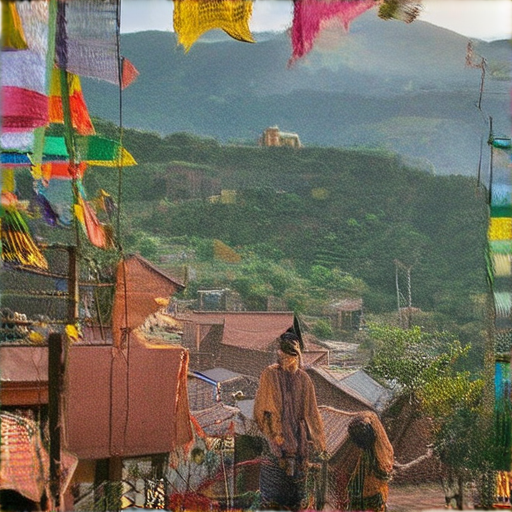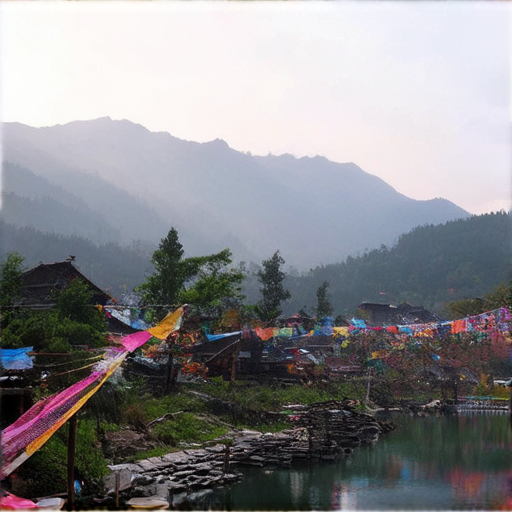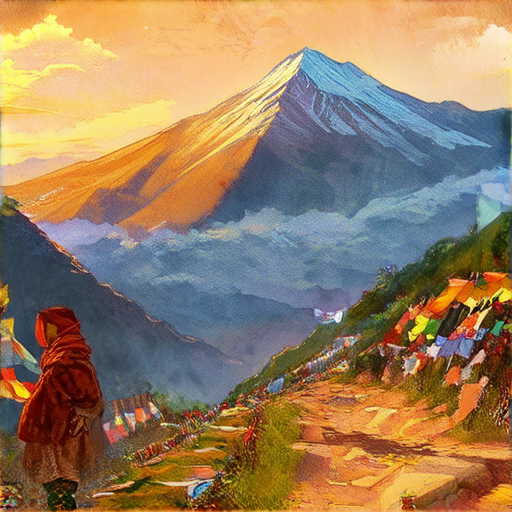Nepal, a land of breathtaking natural beauty and rich cultural heritage, has become an increasingly popular destination for volunteers from around the world. As a hub for community service and social impact, Nepal offers a wide range of opportunities for individuals to make a difference in the lives of its people. From teaching English to rural children to contributing to conservation efforts, there are numerous ways to get involved and give back. But before embarking on a volunteer journey to Nepal, it’s essential to understand what makes the country safe for volunteers, how to prepare for a trip, and what to expect during your time there.
From understanding Nepal’s safety concerns to navigating cultural differences as a solo female traveler, this guide provides valuable insights and practical advice for anyone considering volunteering in Nepal. With its stunning landscapes, diverse wildlife, and resilient communities, Nepal is a unique and rewarding destination for those looking to make a positive impact. By exploring the rewards of volunteering in Nepal, you’ll discover a wealth of opportunities to engage with local communities, develop new skills, and create lasting memories.
Whether you’re a student, traveler, or professional looking for a meaningful experience, Nepal has something to offer. With its warm hospitality, delicious cuisine, and vibrant culture, Nepal is an ideal destination for anyone seeking a life-changing adventure. So why not start planning your volunteer journey today and discover the rewards of giving back in one of the most beautiful countries in the world?

Is Nepal Safe for Volunteers
Nepal is generally considered a safe country for volunteers, despite some concerns related to crime and terrorism. However, it’s essential to understand the nuances of safety in this region before making a decision.
Nepal is a beautiful country with a rich culture and history, offering many opportunities for volunteers to make a positive impact. However, as with any destination, there are potential risks and challenges that volunteers should be aware of.
Factors to Consider When Evaluating Safety in Nepal
- Petty crimes such as pickpocketing, scams, and theft can occur in major cities like Kathmandu and Pokhara. However, these incidents are relatively rare, especially outside of tourist areas.
- Terrorism risks are present in Nepal, particularly in the southern regions near the Indian border. However, these events are extremely rare and usually target specific groups rather than tourists.
- Nepal is prone to natural disasters such as earthquakes, landslides, and floods. While these events can be devastating, they are often unpredictable and may not affect volunteer activities directly.
- The health risks in Nepal are significant, with a high incidence of waterborne diseases such as cholera and typhoid fever. Volunteers should take necessary precautions, such as drinking bottled or filtered water, eating at reputable restaurants, and practicing good hygiene.
- Cultural sensitivity is crucial in Nepal, where visitors should respect local customs and traditions. This includes dressing modestly, removing shoes when entering temples or homes, and avoiding public displays of affection.
Minimizing Risks and Ensuring a Safe Experience
To minimize risks and ensure a safe experience while volunteering in Nepal, consider the following:
- Research your organization thoroughly and choose a reputable one with a strong track record of safety and responsible volunteering practices.
- Stay informed about local conditions and follow advice from authorities, such as the Nepalese government and your organization.
- Register with your home country’s travel advisory department to receive important safety and security updates.
- Take necessary precautions to protect yourself and your belongings, such as using reputable transportation services and keeping valuables secure.
- Be mindful of your surroundings and avoid walking alone in isolated areas, especially at night.
With proper planning, preparation, and awareness, volunteering in Nepal can be a rewarding and safe experience. According to the U.S. Department of State, Nepal is currently classified as a Level 2 country, which means that travelers should exercise increased caution due to crime and terrorism.
Preparing for a Volunteer Trip to Nepal
In order to volunteer in Nepal, it’s essential to understand the visa requirements and regulations.
Do You Need a Visa to Volunteer in Nepal?
To determine if you require a visa to volunteer in Nepal, consider the following factors:
- Citizens of most countries need a visa to enter Nepal. However, Indian nationals are exempt from this requirement.
- The type of visa depends on your nationality, and you may need to apply for a pre-arranged visa before traveling to Nepal or obtain one upon arrival.
- Some organizations, like ICYE Nepal, may have specific requirements or recommendations for obtaining a visa.
Here are some general guidelines to help you navigate the visa process:
- Citizens of countries requiring a pre-arranged visa will typically need to apply through the Nepalese embassy or consulate in your home country. You can find the contact information for the Nepalese embassy or consulate near you using online resources like the Nepalese Embassy website.
- Citizens of countries eligible for a visa upon arrival can obtain a visa at Tribhuvan International Airport in Kathmandu when you arrive in Nepal. You’ll need to meet certain requirements, such as having a valid passport, proof of onward travel, and sufficient funds.
- In addition to the type of visa, you may need to provide additional documentation, such as proof of vaccination, medical insurance, or a sponsor letter from your organization.
For more information on visa requirements for volunteering in Nepal, consult the official government websites or contact the relevant authorities.

Staying in Nepal for Free: A Comprehensive Guide
Nepal is a country with breathtaking landscapes, rich culture, and warm hospitality. For travelers looking to experience this beauty without breaking the bank, staying in Nepal for free requires some planning, flexibility, and creativity.
Volunteer Programs
Many organizations offer volunteer programs in Nepal that cover accommodation, food, and sometimes even transportation in exchange for your skills and time. Some popular options include:
- Teaching English: You can teach English to Nepali students in exchange for room and board.
- Animal Care: Help out at animal sanctuaries or conservation centers and receive accommodation and meals in return.
- Environmental Awareness: Participate in projects focused on conservation and sustainability, and enjoy free accommodation and meals.
Some notable organizations offering volunteer programs in Nepal include:
Work Exchanges
Similar to volunteer programs, many organizations offer work exchanges that allow you to contribute to local businesses or projects in exchange for accommodation and meals.
Some examples of work exchange programs in Nepal include:
Homestays
Stay with a local family and experience Nepali culture firsthand. Homestays often cost between $5-15 per night and can be found through platforms like:
Couchsurfing
Couchsurfing allows you to stay with locals for free, but be sure to follow safety guidelines and respect your host’s space.
Some popular Couchsurfing groups in Nepal include:
Free Accommodation Options
Some cities in Nepal offer free accommodation options, such as:
- Buddhist Monasteries: Many monasteries offer free accommodation to travelers who participate in meditation sessions or help with daily chores.
- Government Hostels: Some government-run hostels offer free accommodation to students and travelers.
Be aware of any permits or regulations required for certain activities, such as trekking or climbing. Research and obtain necessary permits before embarking on any adventure.

Essential Etiquette and Manners
Nepal is a culturally rich and diverse country, where visitors are expected to respect local customs and traditions. As a volunteer in Nepal, it’s essential to understand and follow certain etiquette rules to ensure a smooth and enjoyable experience.
What are the dos and don’ts in Nepal?
The Nepalese people are known for their warm hospitality, but it’s still crucial to be mindful of cultural differences. Here are some dos and don’ts to keep in mind:
- DO: Greet locals with a namaste (hands together in a prayer-like gesture), offer a small gift, and show respect for elders.
- DON’T: Point with your feet, as this is considered rude in Nepalese culture. Instead, use your hands or point with your index finger.
- DO: Remove your shoes before entering temples, homes, or other sacred spaces.
- DON’T: Touch or point at Buddhist or Hindu statues, as this is considered disrespectful.
Tips for interacting with locals and respecting cultural norms
Interacting with locals is an excellent way to immerse yourself in Nepalese culture. Here are some tips to keep in mind:
- Learn basic Nepali phrases: Show respect by learning basic phrases like “namaste” (hello), “dhanyabaad” (thank you), and “chha” (yes).
- Respect dress codes: Dress modestly, covering your shoulders and knees, especially when visiting temples or rural areas.
- Be patient and flexible: Nepalese people are known for their warm hospitality, but they may take longer to respond to requests due to cultural differences.
Health and Safety Precautions
Avoiding health risks and staying safe while volunteering in Nepal is crucial. Here are some essential precautions to take:
How to stay healthy while volunteering in Nepal
Nepal has a relatively low risk of diseases, but it’s still essential to take precautions to avoid illnesses. Here are some tips:
- Get vaccinated: Consult your doctor about recommended vaccinations before traveling to Nepal.
- Use sunscreen and insect repellent: Protect yourself from the sun and insects, which can transmit diseases like malaria and dengue fever.
- Drink bottled or filtered water: Avoid drinking tap water, and opt for bottled or filtered water instead.
Precautions for solo female travelers
Solo female travelers face unique challenges while volunteering in Nepal. Here are some precautions to take:
- Research accommodations: Choose reputable hotels or guesthouses that cater specifically to solo female travelers.
- Stay connected: Keep your family and friends informed of your whereabouts and itinerary.
- Avoid walking alone at night: Stick to well-lit areas and avoid walking alone in dimly lit streets.
Financial Management and Budgeting
Managing your finances effectively while volunteering in Nepal is vital. Here are some tips:
How to manage finances while volunteering in Nepal
Nepal has a relatively affordable cost of living, but it’s still essential to plan your expenses carefully. Here are some tips:
- Set a daily budget: Determine how much you can afford to spend each day, considering accommodation, food, transportation, and activities.
- Use local currency: Exchange your money to Nepalese rupees (NPR) upon arrival, and use local currency for transactions.
- Avoid unnecessary expenses: Be mindful of your spending habits, avoiding unnecessary purchases and opting for free or low-cost activities.
Tips for budgeting and saving money
Budgeting and saving money while volunteering in Nepal requires discipline and planning. Here are some tips:
- Create a budget plan: Set realistic financial goals and allocate funds accordingly.
- Save regularly: Set aside a portion of your income each month for emergencies and long-term savings.
- Take advantage of discounts: Look for discounts and promotions offered by local businesses, tour operators, and organizations.
Safety Precautions
Nepal, a country known for its breathtaking Himalayan landscapes and rich cultural heritage, offers numerous opportunities for adventure-seekers and travelers alike. However, it’s essential to be aware of the dos and don’ts when visiting this beautiful nation.
What Are the Don’ts in Nepal?
- UNICEF Nepal recommends avoiding traveling alone at night due to safety concerns.
- Additionally, Nepal Tourism Board advises visitors to use reputable transportation services, such as licensed taxis or buses.
Additional Safety Measures for Solo Female Travelers
When traveling alone, consider staying in well-lit and populated areas, especially at night. It’s also a good idea to carry a personal alarm or a portable charger for your phone.
Is Nepal Safe for Solo Female Travelers?
Nepal is generally considered a safe country for solo female travelers, with low crime rates compared to other countries in the region. However, as with any travel destination, it’s always important to exercise caution and be aware of your surroundings.
Respecting Local Customs
Dressing modestly is essential when visiting temples or attending cultural events. Avoid revealing clothing, especially in rural areas.
Altitude Sickness
Kathmandu, being situated at an altitude of over 1,300 meters, can cause altitude sickness in some individuals. Drink plenty of water, take breaks, and ascend gradually to acclimate to the high altitude.
Is Nepal Safe for Solo Female Travellers?
Nepal has become increasingly popular among solo female travelers due to its rich culture, breathtaking landscapes, and welcoming locals. However, safety concerns often accompany travel decisions, especially for women traveling alone.
General Safety Overview
While Nepal is considered a relatively safe destination, it’s crucial to exercise caution and awareness when traveling solo as a woman. Petty theft, scams, and harassment can occur, particularly in crowded areas and tourist hotspots. However, these incidents are rare, and most visitors have trouble-free experiences.
Safety Tips for Solo Female Travelers in Nepal
- Research and planning: Before arriving in Nepal, research your destinations, accommodations, and local customs. Plan your itinerary carefully, considering factors like transportation, accommodation options, and social events.
- Stay informed: Register with your home country’s travel advisory department to receive important safety updates about Nepal. Stay up-to-date with local news, weather forecasts, and potential demonstrations or protests.
- Dress modestly: Respect local dress codes, especially when visiting temples, monasteries, or rural areas. Cover your shoulders, knees, and chest to avoid drawing unwanted attention.
- Be mindful of personal belongings: Keep valuables secure, use reputable taxi services, and avoid carrying large amounts of cash. Consider using a money belt or a secure bag.
- Connect with locals: Engage with friendly locals, who are known for their hospitality. They may offer valuable advice, assistance, or even join you on your travels.
- Respect cultural norms: Nepal is predominantly Hindu, so be respectful of local customs, traditions, and festivals. Remove your shoes before entering temples or homes, and avoid public displays of affection.
- Stay connected: Invest in a local SIM card or portable Wi-Fi hotspot to stay in touch with family and friends back home. Download necessary apps, such as those offering emergency assistance or language translation.
- Trust your instincts: If a situation feels uncomfortable or suspicious, trust your instincts and remove yourself from the situation.
Regions and Activities to Exercise Caution
Some regions and activities require extra caution:
- Pokhara and Chitwan National Park: While generally safe, these areas can be prone to petty theft and scams. Be cautious when interacting with strangers, and keep valuables secure.
- Himalayan trekking: Trekking in the Himalayas can be challenging, especially during peak season. Research your route, hire experienced guides, and stay hydrated to avoid altitude sickness.
- Public transportation: Use reputable taxi services or ride-sharing apps, and always sit in the back seat.
Additional Resources
For further guidance and support, consider consulting:
- Government travel advisories: Check your home country’s official website for the latest travel advisories and safety information.
- Local tour operators: Research reputable tour operators specializing in solo female travel, which can provide valuable insights and support.
- Embassy or consulate resources: Reach out to your embassy or consulate for assistance, advice, and emergency contact details.

0 Comments